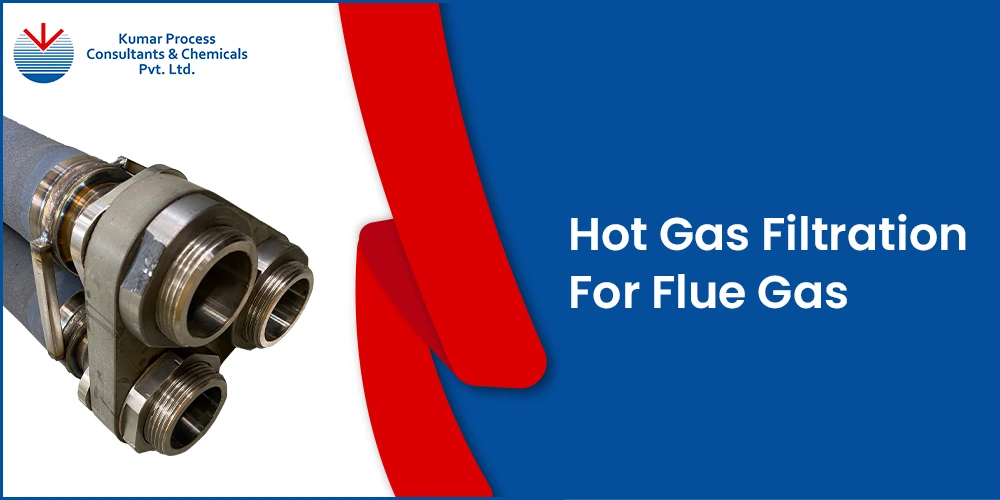


Hot gas filtration is a process that filters gases at temperatures exceeding 260℃ (500°F) using advanced materials like composite metal fibers, ceramic fibers/powder, and metallic fibers/powder, as opposed to polymeric fibers, which would melt or burn at such temperatures. Hot gas filter systems are primarily used in applications involving waste heat utilization from industrial high-temperature flue gas and the purification and recovery of high-temperature gases. Hot gas filtration filter cartridges effectively purify high-temperature gas by removing solid particulates from the incoming hot gases, which may be waste gases or even gases going into downstream equipment for further processing.
Flue gas filters are essential for meeting stringent environmental regulations, effectively filtering gases at temperatures between 100°C and 250°C in standard industrial applications. In exceptional cases, with specialized filter elements, they can operate at temperatures up to 600°C.
These filters are crucial for the efficient separation of small solid particles following combustion in thermal power plants, furnaces, and boilers. By using filters for increased temperatures, industries can ensure that emissions meet legal requirements, thereby enhancing environmental protection.
Hot gas filters can be adapted for a wide range of industrial processes. If necessary, we can customize the filter elements and the vessel to meet specific needs. This flexibility ensures that emissions are effectively controlled across various applications, maintaining compliance with legal standards.
Flue gas filtration in industrial applications faces several challenges, including high temperatures, chemical composition, particulate load, pressure drops, system integration, maintenance, regulatory compliance, and efficiency. These challenges necessitate advanced materials, innovative technologies, and regular maintenance to ensure effective and reliable operation.
• Metal cartridge systems for Dust Removal: Our primary approach involves the deployment of metallic filter cartridge-based systems. These systems are tailored to efficiently remove dust particles from flue gases. Our Fe3Al filters develop an adherent ceramic layer, giving the cartridges the chemical resistance of ceramics coupled with the ductility of metals. This ensures that the filters can sustain thermal shocks effectively, as well as they can be installed easily without the fear of breakage. The material can be used up to 800 C, depending on the gaseous atmosphere. Hastelloy C or SS filter cartridges can also be offered.
• Cleaning of the filter candles: The cleaning process occurs while the hot gas industrial dust collector is operational, ensuring no interruptions or interference with the technological process. Only minimal pressure peaks, or "overpressures," may occur during this process, making it highly efficient and reliable for industrial applications.
• Made – in – India filters: We have our own vacuum sintering setup for making filter candles. This ensures we have much lower lead times when delivering within India. It also means that we have the ability to customize the filter dimensions as required, based on the process parameters.
Each of these filter systems offers unique advantages and is chosen based on factors such as the composition of flue gas pollutants, temperature, efficiency requirements, and regulatory compliance. Integrating these technologies into comprehensive flue gas treatment systems ensures effective pollutant removal and supports sustainable environmental practices.
Flue gas filters are essential in various high-temperature industrial applications, ensuring the efficient removal of small solid particles from flue gases to meet environmental regulations. Key applications include:
By integrating advanced flue gas filter systems, industries can manage emissions efficiently, comply with legal standards, and support environmental sustainability.
Hot gas filtration is used in high-temperature industrial processes to remove particulates from gases, ensuring cleaner emissions and compliance with environmental standards.
Common methods for treating flue gas include filtration, scrubbing, and catalytic reduction, which remove particulates, acids, and pollutants to meet environmental standards.
A hot gas filter removes solid particulates from gases at high temperatures, ensuring clean emissions and protecting downstream equipment.